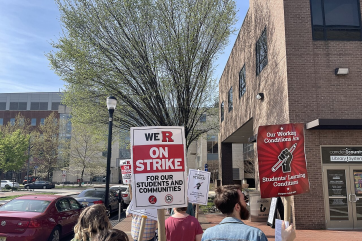Yale University has launched its 2015 slate of Massive Online Open Courses (MOOCs) with new classes on politics, music, and the law.
The spring semester offerings include "Moral Foundations of Politics" with Ian Shapiro, Sterling Professor of Political Science and the Henry R. Luce Director of the Whitney and Betty MacMillan Center for International and Area Studies at Yale; "Introduction to Classical Music" with Craig Wright, the Henry L. and Lucy G. Moses Professor of Music; and "America's Unwritten Constitution" with Akhil Amar, Sterling Professor of Law and Political Science.
Each year, Yale's free MOOCs attract tens of thousands of visitors the world over, providing access to a university education that some may not otherwise get due to geography, age, or opportunity. On average, 67 percent of the students in Yale MOOCs hail from outside of the United States, the majority of whom come from developing economies like India, China, and Brazil.
While participants do not earn Yale credit for MOOCs, sponsoring faculty members offer their courses through the Verified Certificate track (for a $49 fee). Students choosing that option can - if they successfully complete the course -- have their participation and completion verified for prospective employers and others.
Yale's foray into online education began with Open Yale Courses (OYC) in 2007. Since launching the MOOCs a year ago, the level of engagement has steadily increased, according to the Office of Digital Dissemination and Online Education (ODDOE). For example, Robert Shiller, Sterling Professor of Economics and Nobel laureate, taught a MOOC on financial markets both last spring and fall semesters. His second session had 56,295 enrolled learners.
"What's even more intriguing is the fact that about 75 percent of those who enrolled showed some level of engagement with the course material, whether through watching the video lectures, submitting assignments, or browsing around the course materials and discussion forums," Melissa Thomas, project coordinator at the ODDOE, said in a statement.
According to Thomas, Yale's online course offerings demonstrate the high production values and qualities distinct to Yale offerings, with a different pedagogical approach. The online classes include lectures, assignments, exams, online discussion groups, and online office hours with faculty and teaching assistants, as well as interactive features and tools for assessment.
Registration is now open for these free courses, available to students around the world through the university's Coursera platform.








